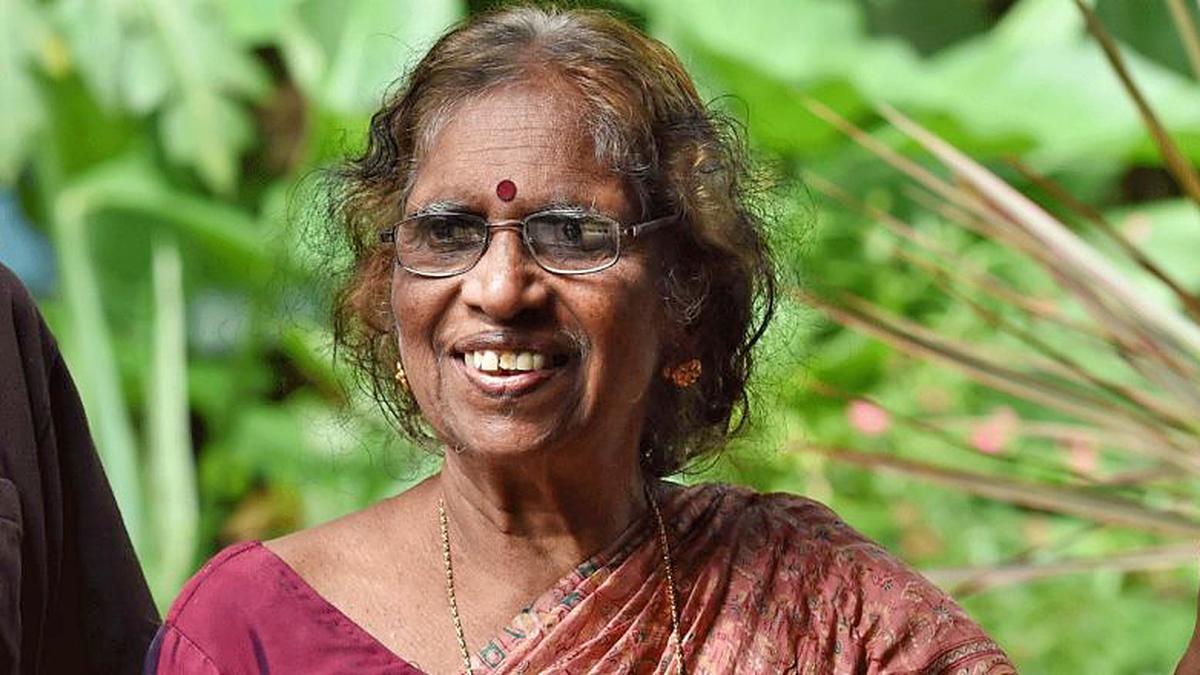
Malayalam author P. Valsala told fascinating tales and had fine craft as a writer
The Hindu
P. Valsala, a significant Malayalam novelist, introduced readers to the lives of tribal people in Wayanad with her masterpiece, Nellu. Her other works include Thakarcha, Nizhalurangunna Vazhikal, Venal, Palayam, Gauthaman, Kanal and Melppalam. She was awarded the Kerala Sahitya Akademi Award and the Ezhuthachan Puraskaram, Kerala’s highest literary honour. She was a dedicated writer, determined to make her mark despite the challenges of being a working woman.
P. Valsala, who died at a private hospital in Kozhikode, Kerala, late on November 21 (Tuesday) night at the age of 85, was a significant Malayalam novelist of her generation and one of the early female writers to make a mark. Her masterpiece, Nellu, introduced to the readers a world that they were not familiar with: the lives of tribal people, in Wayanad.
The novel had caught the attention of readers when it was serialised in the magazine Kunkumam five decades ago. She followed it up with Agneyam, which she wrote after her unexpected meeting with Naxal Varghese on the banks of Kalindi River one evening. Agneyam,and then years later, Koomankolli would form a trilogy of novels set in Wayanad.
Wayanad was indeed a second home to Valsala who belonged very much to Kozhikode. She was fascinated by the hilly district after listening to her father about it.
She felt she could write a novel set in Wayanad; she lived there and researched on the lives of the much-exploited tribal people.
“I remember reading Nellu in the serial form in Kunkumam and was very impressed,” writer C.V. Balakrishnan told The Hindu. “That novel, I felt, continued in the great tradition of the Malayalam novel maintained by the likes of Uroob and S.K. Pottekkatt. Nellu was definitely a novel experience for the Malayali readers,” he said.
Among those readers was Ramu Kariat, the National Award-winning film director. He wanted to adapt Nellu for the screen. Valsala agreed to the proposal because she had liked the way Kariat turned Thakazhi Sivasankara Pillai’s novel Chemmeen into a fine film.
Kariat also asked her to write the script, but he had also entrusted the same task with K.G. George and S.L. Puram Sadanandan. “In the end, he took scenes from all the three scripts and made the film,” Valsala had said.











